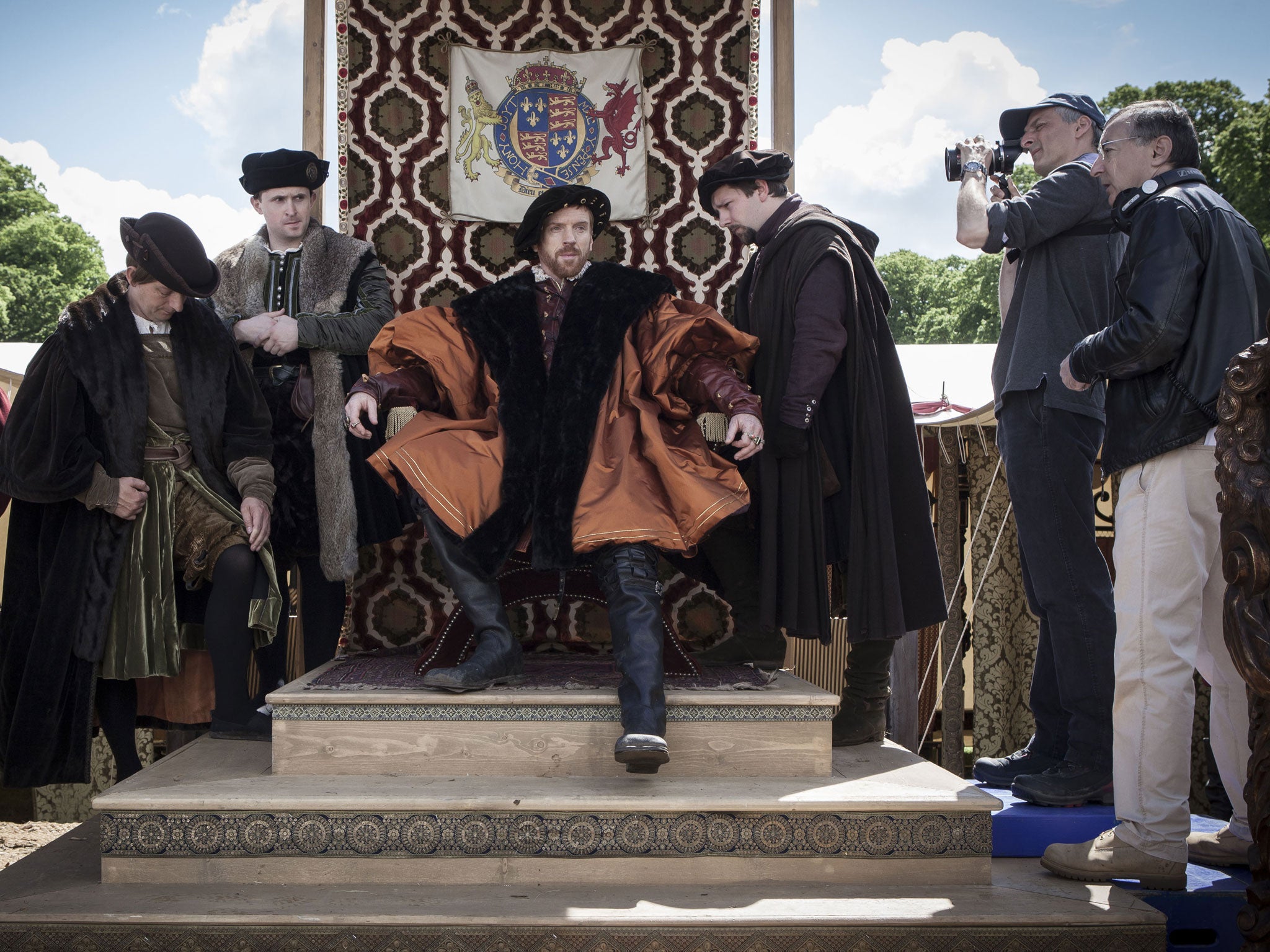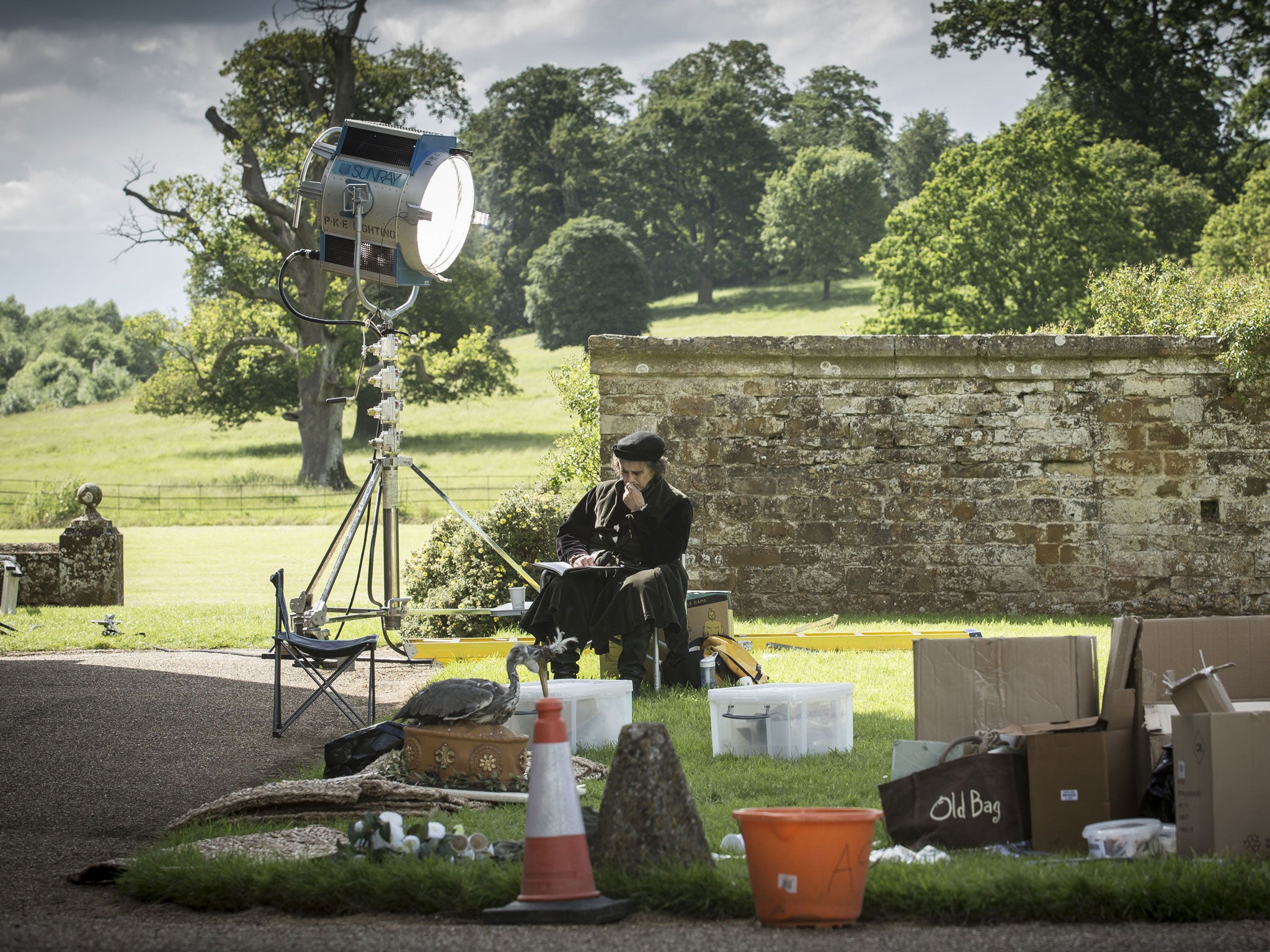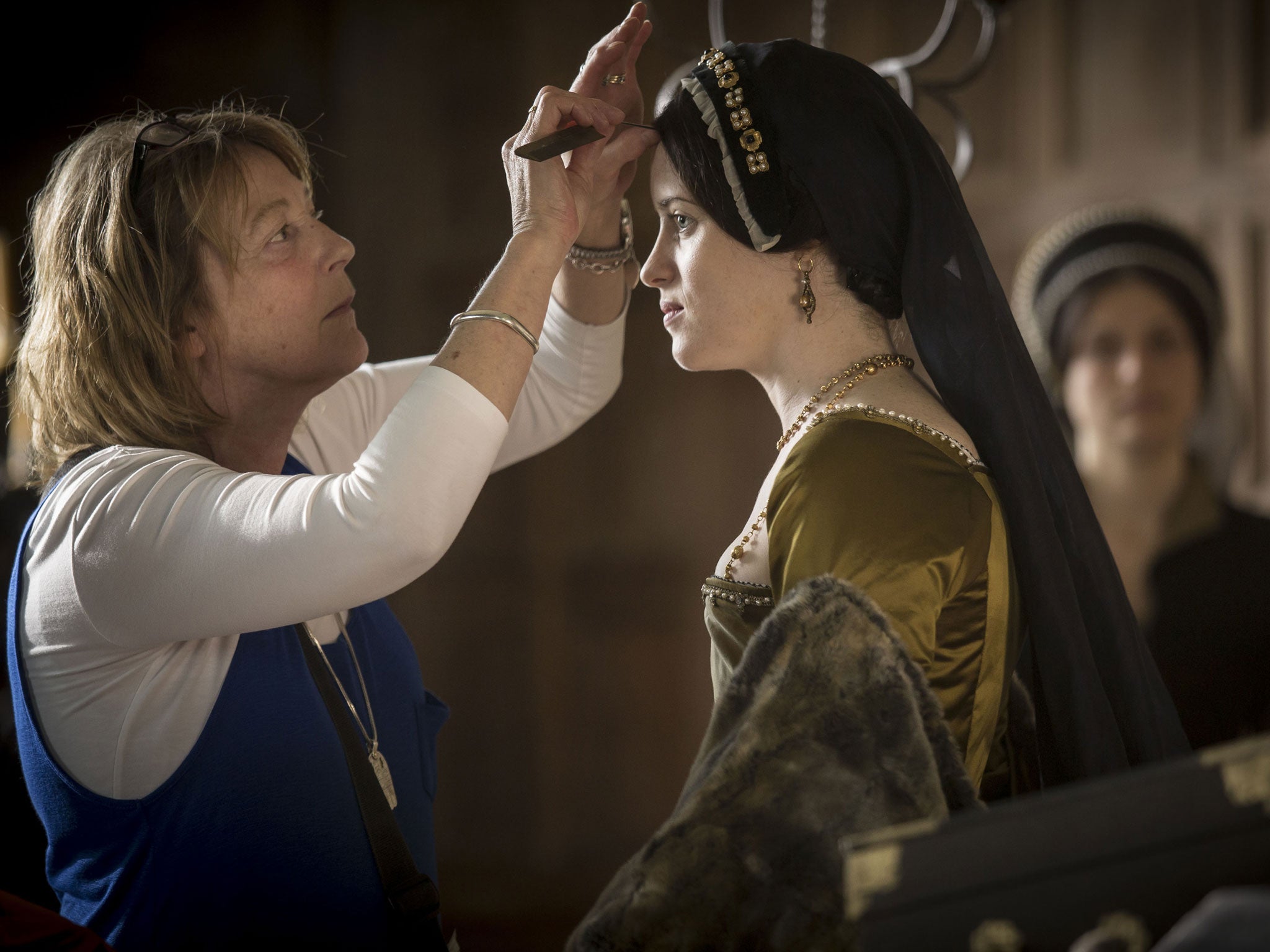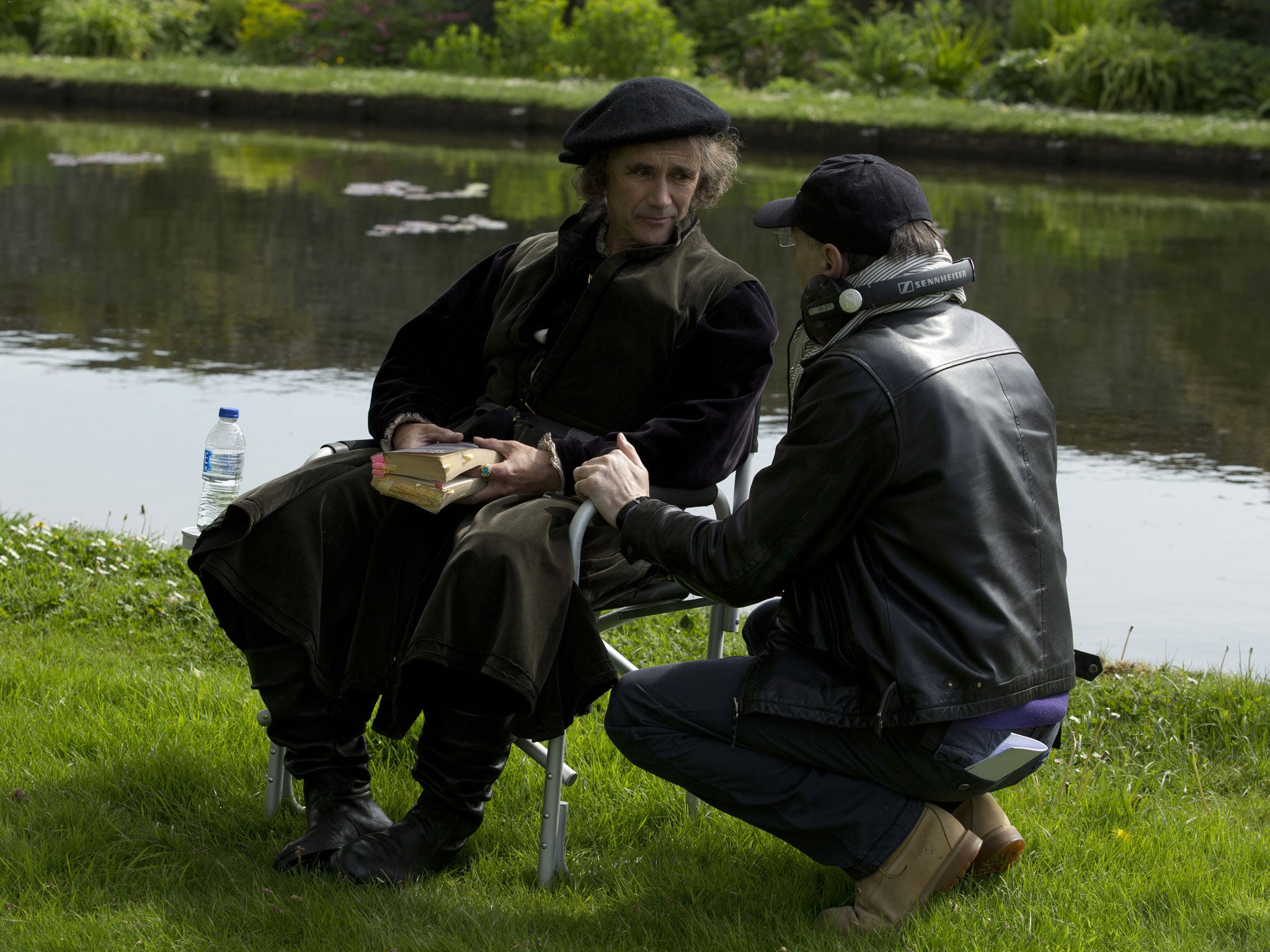Wolf Hall: Damian Lewis and Mark Rylance on bringing the intrigue of the Tudor court to life
BBC adaptation of Hillary Mantel's award-winning novels begins this month

Your support helps us to tell the story
From reproductive rights to climate change to Big Tech, The Independent is on the ground when the story is developing. Whether it's investigating the financials of Elon Musk's pro-Trump PAC or producing our latest documentary, 'The A Word', which shines a light on the American women fighting for reproductive rights, we know how important it is to parse out the facts from the messaging.
At such a critical moment in US history, we need reporters on the ground. Your donation allows us to keep sending journalists to speak to both sides of the story.
The Independent is trusted by Americans across the entire political spectrum. And unlike many other quality news outlets, we choose not to lock Americans out of our reporting and analysis with paywalls. We believe quality journalism should be available to everyone, paid for by those who can afford it.
Your support makes all the difference.It’s only early January but it seems that we might already have the best new British drama of 2015 about to air, although some readers may need to suppress a yawn when it’s added that this is a BBC costume drama led by a great Shakespearian actor. Safe as houses?
Not so. Writer Peter Straughan and director Peter Kosminsky’s engrossing adaptation of Hilary Mantel’s Booker-winning novels Wolf Hall and Bring Up the Bodies, starring Mark Rylance as Thomas Cromwell and Damian Lewis as King Henry VIII, reinvigorates a genre grown comfortable in its award-winning ways, shaking it up in a manner not seen since I Claudius in the 1970s.
“It seemed to me that this could be a historical drama for a post-The Sopranos, post-Breaking Bad audience,” says executive producer Colin Callender, the British-born former head of HBO Films, and the successful suitor of the many who were clamouring to adapt Mantel’s Tudor history novels (Mantel was a fan of Callender’s HBO mini-series about America’s second President, John Adams).
“Thomas Cromwell isn’t an antihero in the sort of Breaking Bad, Tony Soprano way,” Callender continues. “But he is complex and it’s more akin to that world than something like The Tudors.”
Mantel’s novels are seen through the eyes of Cromwell, the Putney blacksmith’s son turned statesman and chief engineer in annulling Henry VIII’s marriage to Catherine of Aragon, and so it follows that in this six-hour adaptation the character is barely off screen. Wolf Hall requires an actor of considerable substance, and provides Mark Rylance with an opportunity to showcase his talents to a far wider audience than his usual theatrical one. “You can see him close up in a way you can’t on stage,” enthuses Callender. “Most good actors convey two emotions at the same time… Rylance can convey a thousand things.”
And it is such a captivating performance that you can forgive the hyperbole. The man himself is resting in the shade of a tree when I join him on set at Broughton Castle in Oxfordshire, a moated manor house whose interiors are standing in for Windsor Castle. Rylance says that he enjoyed the books and admired the scripts, but the chief attraction was being reunited with Peter Kosminsky, with whom he made his last major foray into television, playing weapons expert David Kelly in the 2005 Channel 4 drama The Government Inspector.

“The issue really was who would direct… someone who would be very careful about the period stuff,” he says. “I’d been in The Other Boleyn Girl [the 2008 movie of Philippa Gregory’s novel], playing Thomas Boleyn – Anne’s father; and although I enjoyed working with those people, it was more of a Hollywood take on things. Hilary doesn’t just make a plot, she makes you believe you’re there with these people; and in the case of my character you get a wonderful insight into a pre-Renaissance mind.”
Indeed, Wolf Hall isn’t the sort of history drama that employs hundreds of extras on horseback, but sharper, more intimate scenes, and Rylance shares some terrific two-handers with Jonathan Pryce (as Cardinal Wolsey, Cromwell’s first patron), Claire Foy (as a French-speaking and thrillingly ruthless Anne Boleyn), Anton Lesser (as a Thomas More that beatifying Catholics might find offensive) and Bernard Hill (as a belligerently snobbish Duke of Norfolk). But the central relationship is between Cromwell and Henry VIII – a relationship that Rylance compares to taming a bear.
“I met a man once who kept grizzly bears in Montana,” he says. “And when I questioned his sanity he said what you’ve got to understand is that they’re intensely emotional, much more emotional than human beings, and they’re easily hurt. Henry’s like that.”

Watch Apple TV+ free for 7 days
New subscribers only. £8.99/mo. after free trial. Plan auto-renews until cancelled

Watch Apple TV+ free for 7 days
New subscribers only. £8.99/mo. after free trial. Plan auto-renews until cancelled
Blinded by the dominant Holbein portrait of a later, more corpulent Henry, I was initially surprised by the casting of Damian Lewis. But striding across Broughton Castle’s lawn, fully costumed and ready shoot a banqueting scene, the red-haired Homeland star looks every inch the Tudor monarch. “Henry was always painted as this larger than life roistering, philandering, syphilitic sort of Tudor Elvis,” says Lewis. “Although there might some truth in that towards the end, he started with a 34-inch waist and was regarded as a great athlete.

“I think he’s also very biddable, very impressionable, because he doesn’t concentrate on the affairs of state,” he continues. “And anyone who was concentrating – like Wolsey and Cromwell – and were quietly working the angles, were able to easily influence him.”
Although he filmed his role in the spy thriller Our Kind of Traitor just before Wolf Hall, that John le Carré adaptation won’t be released until later in 2015, and with King Henry, Lewis couldn’t have chosen a better role for putting distance between himself and Sergeant Brody. “Projects like Homeland are one in a million,” he says, “and if you happen to be in something that garners global acclaim that rapidly then it’s very heady… like a forest fire… and quite overwhelming at times. But it’s also a little bubble that exists on its own… it doesn’t really have much to do with the rest of my career.”
Brody was written out of Homeland after three seasons, leaving Claire Danes to go it alone. “I only expected to be in two series and then got another season, which was a bonus and brilliant,” he says. “And then quite rightly my head was lopped off – or I was strung up at least [Brody was hanged by the Iranian authorities in the season three finale]. That was absolutely the right decision. Anyway, being in anything for seven years makes me very nervous; I think it probably does for most actors… most British actors anyway. I had said that I didn’t want to do any more TV because the hours are very long and I have two very little children and I wasn’t going to move everyone to North Carolina.”
The two small children – Gulliver and Manon – are with Helen McCrory, his wife of seven years and the star of Skyfall, the Harry Potter movies and Peaky Blinders – the couple juggling parental duties between acting jobs. Lewis’s next assignments are both in theatre – a Broadway run of Tennessee Williams’s The Night of the Iguana in February, and a new West End production of David Mamet’s American Buffalo in April. Does he feel that he has to actively reconfigure his career after the star-making success of Homeland?

“I might be a bit wary of playing another soldier,” says Lewis, whose television breakthrough came in Steven Spielberg’s 2001 miniseries Band of Brothers, and who also played a British Army major in Peter Kosminsky’s 1999 Bosnia-set drama about UN peacekeepers, Warriors. “But if the personality of that soldier and the context of that soldier is different – then who knows?” In fact, since we spoke, Lewis has been cast opposite Nicole Kidman as a Victorian soldier in Werner Herzog’s upcoming film about the explorer Gertrude Bell, Queen of the Desert.
“People do keep asking me to do comedy and I love doing comedy and I’m always thinking about it,” he says. “I suppose I get my comedy kicks doing Have I Got News for You, and also it’s hard finding funny comedy. I quite like the idea of the immediacy of sitcom acting, and I would have loved to have been in something like The Office. Even Friends… when Friends was good it was really good.”
Lewis may also have a go at directing, and he hints at a project “that I could mention but I’m going to wait”. If the world seems to be his oyster then that is of course largely thanks to Homeland – leaving him in a similar position to his friend and fellow Old Etonian, Dominic West, when West’s career-changing stint in The Wire came to an end. “Of course it’s exciting to have had that success, and, yes, it does raise your stock,” says Lewis. “And that’s for the good because how can it not be?”
“I think it was a brilliant move on the part of Damian Lewis to go from Homeland into a role that’s completely different and a world that’s completely different,” says Wolf Hall producer Colin Callender, although Lewis himself argues that there is a thriller element in Hilary Mantel’s tales. “You’ll just see the machinations of courtly life, and that should unravel like a thriller,” he says. “You should get the feeling that no one quite knows if they’re safe or not, from whims of this magnetic but capricious king.
“Really what dominates Henry is this idea that he must secure his succession,” continues Lewis, “and that can only be done in his eyes through a son; ironic of course that his daughter ended up being one of our greatest monarchs… he needn’t have worried so much.”
‘Wolf Hall’ starts on 21 January at 9pm on BBC2
Join our commenting forum
Join thought-provoking conversations, follow other Independent readers and see their replies
Comments